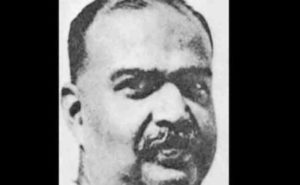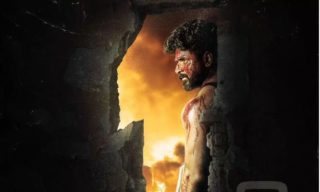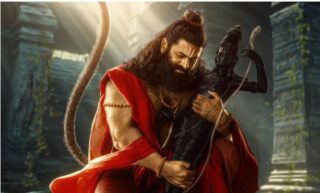 There are two kinds of government: One that seeks power for power’s sake…i.e….to enjoy the trappings of power and make the most of opportunities that come its way. Any development of the nation is a byproduct and usually accidental. The status quo is usually maintained.
There are two kinds of government: One that seeks power for power’s sake…i.e….to enjoy the trappings of power and make the most of opportunities that come its way. Any development of the nation is a byproduct and usually accidental. The status quo is usually maintained.
The other kind makes use of power to actually bring in change and improve the political and economic situation of the nation. The BJP has proved with its decision on Article 370 in Kashmir that it clearly belongs to the latter category.
After a resounding win in the recent elections, the BJP could have just maintained the status quo. It need not have taken such a pro-active decision in the nation’s interest.
For example, when the Mumbai attacks happened, the UPA government was content with just moving the army to the border and issuing the customary warning of threatening Pakistan with dire consequences if such attacks were repeated in future. Thus, it showed the lack of courage and political will by the UPA dispensation.
Which self-respecting nation would sit silently while terrorists from across its border enter into territory and kills innocent citizens at random?
Similarly, the UPA did not take any tangible measure to resolve the Kashmir issue in India’s favour. It was all the time sucking up to the Omar Abdullahs, Mehbooba Muftis and other separatists in the Valley.
Indulging in vote-bank politics, the UPA dispensation had closed Kashmir to the rest of the nation by putting the Valley in the hands of the aforementioned dynasties who bled the State dry with their corruption.
They never took any stringent action against the militants or separatists either, pampering them at every whim and fancy.
In fact, it was Atal Bihari Vajpayee who tried to improve relations with Pakistan by undertaking the historic Lahore-Bus Yatra. However, Pakistan repaid Vajpayee’s act of friendship with Kargil.
Article 370 instead of improving the economic condition of Kashmir shut it out to the rest of the nation. Indians not from Kashmir could neither buy property there, nor work there or marry a Kashmiri girl.
All the funds allotted to Kashmir were siphoned off by the Abdullahs and Muftis who also turned a blind eye to militancy (read soft corner) and the separatists putting the Valley in constant peril.
Ladakh was treated as an outcaste and representatives from the region had absolutely no say in the development of their province. Urdu was mandated in the schools of Ladakh much against the wishes of the local population.
Now, with the demarcation of Ladakh as a separate Union territory, all policies and development will be Ladakh-centric.
As for Kashmir, the stone-pelters will no longer enjoy patronage and immunity and neither will the militants as the Centre has comprehensively clipped the wings of the existing (pro-Pakistan) dynasties.
“How can a State within the Indian Union” questioned Shyam Prasad Mukherjee, the man who died for the cause of the nation’s unity.
Shyam Prasad Mukherjee was a Minister in Nehru’s cabinet who quit the Congress after differing with Nehru on the Kashmir issue.
With the help of the Rashtriya Swayamsevak Sangh, he founded the Bharatiya Jana Sangh, the predecessor to the Bharatiya Janata Party, in 1951.
Mukherjee was strongly opposed to Article 370 seeing it as a threat to the unity of the country and fought against it inside and outside Parliament.
Mukherjee went to visit Kashmir in 1953 and observed a hunger strike to protest the law that prohibited Indian citizens from settling within the state and mandating that they carry ID cards.
Mukherjee was arrested upon entering Kashmir on 11 May 1953. He died on June 23 in jail, reportedly of a heart attack, a theory still disputed to this day with many citizens of India calling it a political murder instigated with the connivance of Nehru to placate Farooq Abdullah.
Even DR BR Ambedkar was against Article 370 but was forced to include it in the Constitution at the insistence of Nehru and Farooq Abdullah.
Today, the RSS led by Mohan Bhagwat has realised the dream of Shyam Prasad Mukherjee courtesy of its two stalwarts Modi and Amit Shah.
The BJP has displayed political will (courage) and its willingness to walk the talk. Rest in peace. Shyam Prasad Mukherjee!

























